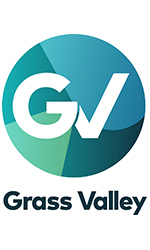Ateliere FrameDNA/Deep Analysis Video Deduplication
Category Cloud

Staying competitive in M&E today means you need to distribute and stream content to multiple platforms and/or countries. This results in many versions of content to meet numerous different compliance requirements and language needs; one title could generate hundreds of versions. Because of this, content libraries and archives, whether large or small, have significant duplication that not only stresses storage pools, but makes moving content into flexible cloud-based delivery and distribution workflows - another huge competitive advantage - out of reach in terms of costs. Deep Analysis/FrameDNA tackles this pain point head-on with automated video deduplication, optimizing storage pools and making moving content into the cloud much more affordable.
There are two key technologies at work in Deep Analysis. The first is driven by artificial intelligence (AI).
Ateliere proprietary FrameDNA AI/ML works by fingerprinting every frame in the image track of a file upon ingest into Ateliere Connect, and based on structural similarities, identifies the scenes that are different, allowing for easy comparison. Deep Analysis can then automatically extract the variant clips without having to manually scan through the entire file. Because FrameDNA engages this workflow in a parallel processing and auto-scaling way, the whole process of scanning and identifying the clips takes minutes.
The second key technology at work in Deep Analysis is IMF generation in the cloud. Deep Analysis converts the results of its scan into a base CPL (the Original Version) that contains your original material and various supplemental Composition PlayLists (CPLs) that describe how to combine your original material and deltas together to compose different versions.
The unique Ateliere Connect deduplication workflow also reduces the inevitable quality costs (QC) by minimizing content to be validated. To illustrate, a 90 minute movie in English that requires French and Spanish versions would typically have three fixed-time QC checks. Even if the QC system is automated, the software still has to inspect three full-fat, separate files.
The CPLs for the French and Spanish versions contain only elements that are different such as subtitles. Your QC cost will be fixed for the English version, but now the operator (or QC software) only needs to inspect the unique frames in the other two versions, reducing the time and costs to check them individually and QC costs across the project overall.
The cost savings increase when applying Deep Analysis/FrameDNA against additional content versions. For example, for an SD or HD ProRes 422 25FPS file, running Deep Analysis/FrameDNA against two versions can save you ~48%. For the same type of file, running Deep Analysis/FrameDNA against four versions can save you ~72%. For ten versions, it can save you ~87%. And these savings only increase when it comes to content with UHD resolution.
In addition to the archival cost savings and associated efficiencies gained in QA, users benefit from increased delivery flexibility. By storing content in the form of CPLs and using Ateliere Connect, users can quickly render the required localized versions on demand, keeping and discarding texted elements based on the content platform’s requirements.




